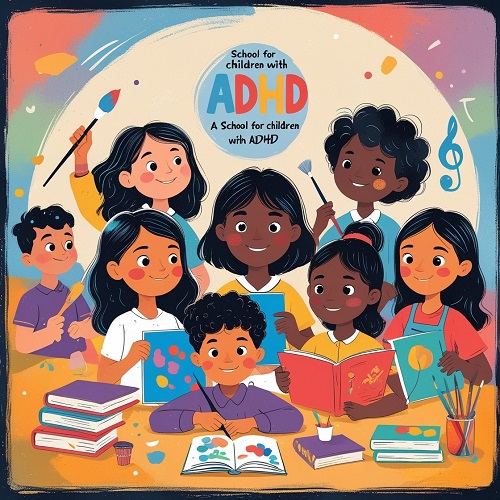Parenting a child with ADHD (Attention Deficit Hyperactivity Disorder) can be both rewarding and challenging. One of the most important decisions parents face is choosing the right school that understands their child’s needs and provides a supportive, structured, and engaging environment. If you’ve ever searched “ADHD schools near me,” you’re not alone—thousands of parents look for the same answers every year. This guide will help you understand what to look for, what questions to ask, and how to ensure your child thrives academically and emotionally.
Understanding What ADHD Schools Offer
ADHD schools or ADHD-friendly programs are designed to meet the unique learning styles of children who struggle with attention, hyperactivity, or impulsivity. These schools provide smaller class sizes, individualized learning plans, and teachers trained in behavioral and emotional regulation strategies. The goal isn’t just to help your child perform better academically—it’s to help them develop confidence, focus, and lifelong coping skills.
Many ADHD-focused schools integrate structured schedules, visual learning aids, and frequent breaks to help students stay engaged. They also promote self-regulation through social-emotional learning, mindfulness, and consistent routines.
Key Features to Look For in an ADHD-Friendly School
When evaluating ADHD schools near you, pay attention to these important factors:
-
Specialized Staff Training:
Teachers and counselors should have expertise in ADHD and related learning challenges. Ask if they use evidence-based interventions such as Cognitive Behavioral Therapy (CBT) or executive function coaching. -
Individualized Education Plans (IEPs) or 504 Plans:
The school should support your child’s educational plan under federal or state guidelines. These plans outline personalized accommodations such as extra time on tests, flexible seating, or assistive technology. -
Small Class Sizes:
A low student-to-teacher ratio allows for individualized attention and minimizes distractions. Smaller settings often help students with ADHD stay more focused and engaged. -
Positive Behavioral Support Systems:
Schools that use positive reinforcement strategies, rather than punishment, encourage good behavior and self-discipline in a nurturing way. -
Integration of Movement and Breaks:
ADHD learners often benefit from physical activity between lessons. Schools with scheduled movement breaks, physical education, and outdoor learning can make a significant difference.
Public vs. Private ADHD Schools
Both public and private institutions can serve ADHD students effectively—what matters most is the school’s approach and resources.
-
Public Schools:
Many public schools offer special education programs and 504 accommodations. They’re cost-effective and have access to state resources, but support quality can vary by district. -
Private ADHD Schools:
These schools specialize in teaching children with ADHD and learning differences. They often provide individualized instruction, therapy services, and advanced support but can be more expensive.
Some hybrid or charter schools also blend traditional and ADHD-focused learning approaches, giving families more flexibility.
Questions to Ask Before Enrolling
When visiting potential schools, don’t hesitate to ask questions such as:
-
How does the school handle behavioral challenges?
-
What kind of support do teachers receive for ADHD training?
-
Are therapy or counseling services available on-site?
-
How does the curriculum adapt to different learning paces?
-
What is the communication process between teachers and parents?
These questions help you gauge how well the school aligns with your child’s needs and your family’s expectations.
Supporting Your Child at Home
While finding the right school is crucial, home support plays an equally vital role. Here are a few strategies to reinforce what your child learns at school:
-
Create a consistent daily routine.
-
Use visual reminders and checklists for homework and chores.
-
Encourage physical activity to improve focus and reduce restlessness.
-
Celebrate small wins to build motivation and self-esteem.
-
Maintain open communication with teachers and counselors.
When parents and educators work together, children with ADHD experience better emotional regulation, higher academic achievement, and stronger confidence.
Resources for Finding ADHD Schools Near You
You can start by searching online directories, such as:
-
Understood.org – Lists ADHD-friendly schools and parent resources.
-
GreatSchools.org – Offers reviews and ratings from parents and educators.
-
Local ADHD Support Groups – Connects families who can recommend schools and specialists.
Additionally, consult your child’s pediatrician or psychologist for local recommendations, as they often work with schools that specialize in ADHD education.
Conclusion
Finding the right ADHD school near you can change your child’s educational experience dramatically. The right environment fosters focus, curiosity, and self-confidence—allowing your child to thrive instead of struggle. Whether you choose a public program or a specialized private school, prioritize understanding, structure, and empathy. With the right team and tailored approach, every child with ADHD can succeed both in school and beyond.



